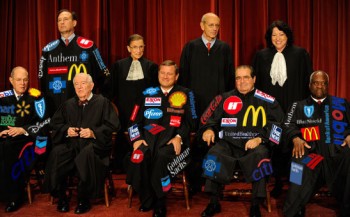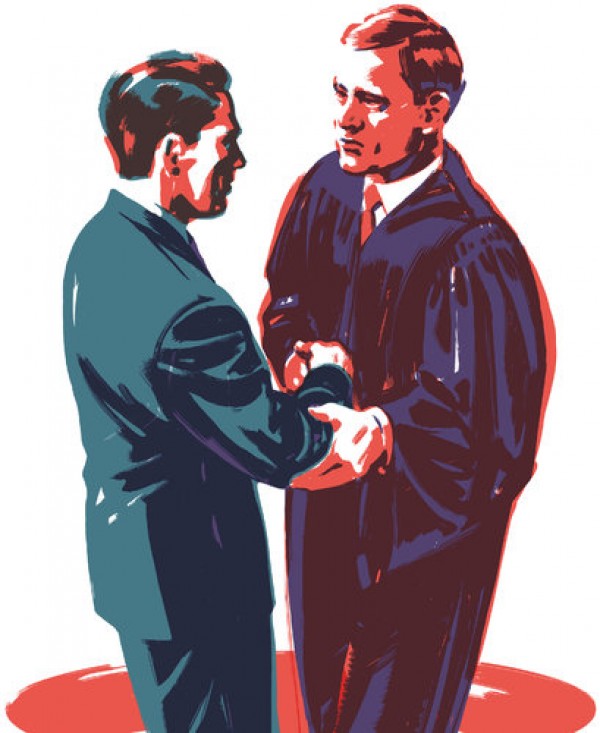Illustration by NANCY STAHL
NEW YORK TIMES: In the eight years since Chief Justice Roberts joined the court, it has allowed corporations to spend freely in elections in the Citizens United case, has shielded them from class actions and human rights suits, and has made arbitration the favored way to resolve many disputes. Business groups say the Roberts court’s decisions have helped combat frivolous lawsuits, while plaintiffs’ lawyers say the rulings have destroyed legitimate claims for harm from faulty products, discriminatory practices and fraud.
Whether the Roberts court is unusually friendly to business has been the subject of repeated discussion, much of it based on anecdotes and studies based on small slices of empirical evidence. The new study, by contrast, takes a careful and comprehensive look at some 2,000 decisions from 1946 to 2011.Published last month in The Minnesota Law Review, the study ranked the 36 justices who served on the court over those 65 years by the proportion of their pro-business votes; all five of the  current court’s more conservative members were in the top 10. But the study’s most striking finding was that the two justices most likely to vote in favor of business interests since 1946 are the most recent conservative additions to the court, Chief Justice Roberts and Justice Samuel A. Alito Jr., both appointed by President George W. Bush. […]
current court’s more conservative members were in the top 10. But the study’s most striking finding was that the two justices most likely to vote in favor of business interests since 1946 are the most recent conservative additions to the court, Chief Justice Roberts and Justice Samuel A. Alito Jr., both appointed by President George W. Bush. […]
The court’s general track record, particularly in low-profile but important procedural rulings, has been decidedly pro-business, said Arthur R. Miller, a law professor at New York University. The upshot, he said, is that businesses are free to run their operations without fear of liability for the harm they cause to consumers, employees and people injured by their products.“The Supreme Court has altered federal procedure in dramatic ways, one step at a time, to favor the business community,” he said, by, among other things, “increased grants of summary judgment, tightening scientific evidence, rejecting class actions, heightening the pleading barrier and wholesale diversions into arbitration.” MORE

